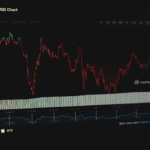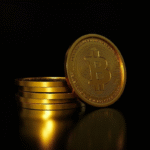
Governance tokens are a crucial component in the realm of decentralized finance (DeFi) and decentralized autonomous organizations (DAOs). Unlike traditional securities, these tokens empower holders with voting rights to influence the direction of blockchain projects. The fundamental idea is to distribute decision-making power among a broad base of stakeholders, promoting transparency and decentralization.
Mechanisms of Governance Tokens
Governance tokens operate on a straightforward principle: the more tokens one holds, the greater their voting power. This system allows token holders to vote on various proposals, ranging from protocol upgrades to resource allocation. For instance, MakerDAO uses its MKR tokens to allow holders to vote on changes affecting the DAI stablecoin’s collateral requirements and monetary policies. Similarly, Uniswap’s UNI tokens enable users to propose and vote on changes to the protocol, ensuring that decisions align with the community’s interests.
The Role of Governance Tokens in DAOs
DAOs leverage governance tokens to decentralize control. These organizations are governed by smart contracts and operate without centralized leadership. This structure allows for decisions to be made collectively by the community. For example, in MakerDAO, MKR token holders can vote on protocol updates, demonstrating the effectiveness of decentralized decision-making. This model is also seen in projects like Compound and PancakeSwap, where governance tokens (COMP and CAKE, respectively) play pivotal roles in protocol governance.
Benefits of Governance Tokens
Decentralization and Inclusivity
Governance tokens enhance decentralization by distributing decision-making power among token holders, preventing any single entity from gaining excessive control. This inclusivity allows a diverse range of participants to contribute to decision-making processes, leading to more innovative solutions and aligning decisions with the community’s needs.
Incentive Alignment
By holding governance tokens, stakeholders have a vested interest in the project’s success, encouraging more thoughtful and engaged participation. This alignment of incentives helps ensure that decisions made are in the best interest of the project and its community.
Challenges and Criticisms
Centralization Risks
Despite their decentralizing intent, governance tokens can sometimes lead to centralization if large holders wield disproportionate influence. Ensuring a fair distribution of tokens and implementing mechanisms like quadratic voting can help mitigate this risk.
Technical and Security Issues
The technical complexity of implementing robust voting mechanisms and smart contracts can pose significant challenges. Ensuring these systems are secure and resistant to manipulation is crucial to maintaining the integrity of the governance process.
Regulatory Uncertainty
The legal status of governance tokens remains ambiguous in many jurisdictions. This uncertainty can lead to regulatory scrutiny and compliance challenges, which must be navigated carefully by projects and token holders alike.
Case Studies: Real-World Implementations
MakerDAO
MakerDAO utilizes its MKR tokens to manage the DAI stablecoin, with token holders voting on critical updates to the protocol. This system has allowed MakerDAO to adapt to market conditions effectively, showcasing the power of decentralized governance.
Uniswap
Uniswap’s UNI tokens empower its community to influence protocol changes, including liquidity mining programs and fee structures. The widespread adoption of UNI tokens has helped maintain Uniswap’s status as a leading decentralized exchange.
Future of Governance Tokens
The future of governance tokens looks promising, with potential expansions beyond DeFi and DAOs into sectors like supply chain management and public administration. Innovations in voting mechanisms and governance models may address current challenges, further enhancing the efficiency and inclusivity of decentralized decision-making processes.
Governance tokens are transforming the landscape of decentralized networks by promoting transparency, inclusivity, and active participation. While they offer significant advantages over traditional systems, they also present challenges that need to be addressed. Understanding the mechanisms, benefits, and risks associated with governance tokens is essential for anyone interested in the future of decentralized governance.
Discover Digital Asset Opportunities with Kenson Investments
At Kenson Investments, our team is here to assist with your queries. We pride ourselves on offering support in blockchain asset portfolios. Although we do not provide tax advice, our commitment to transparency and legitimacy in digital assets ensures you’re in reliable hands.
Let Kenson Investments be the change you seek in the digital asset spaces. Join us in pushing the industry forward securely and transparently!














